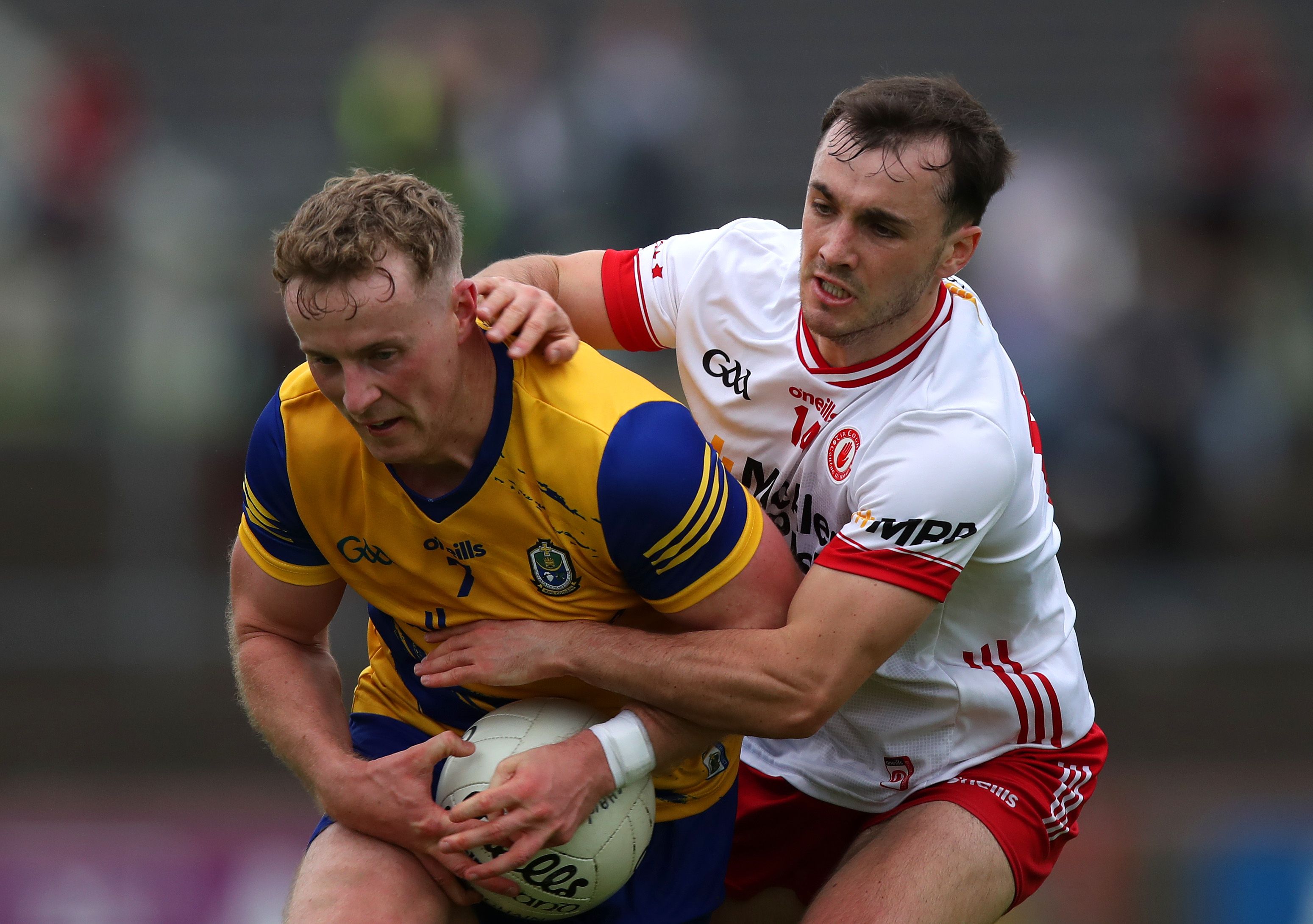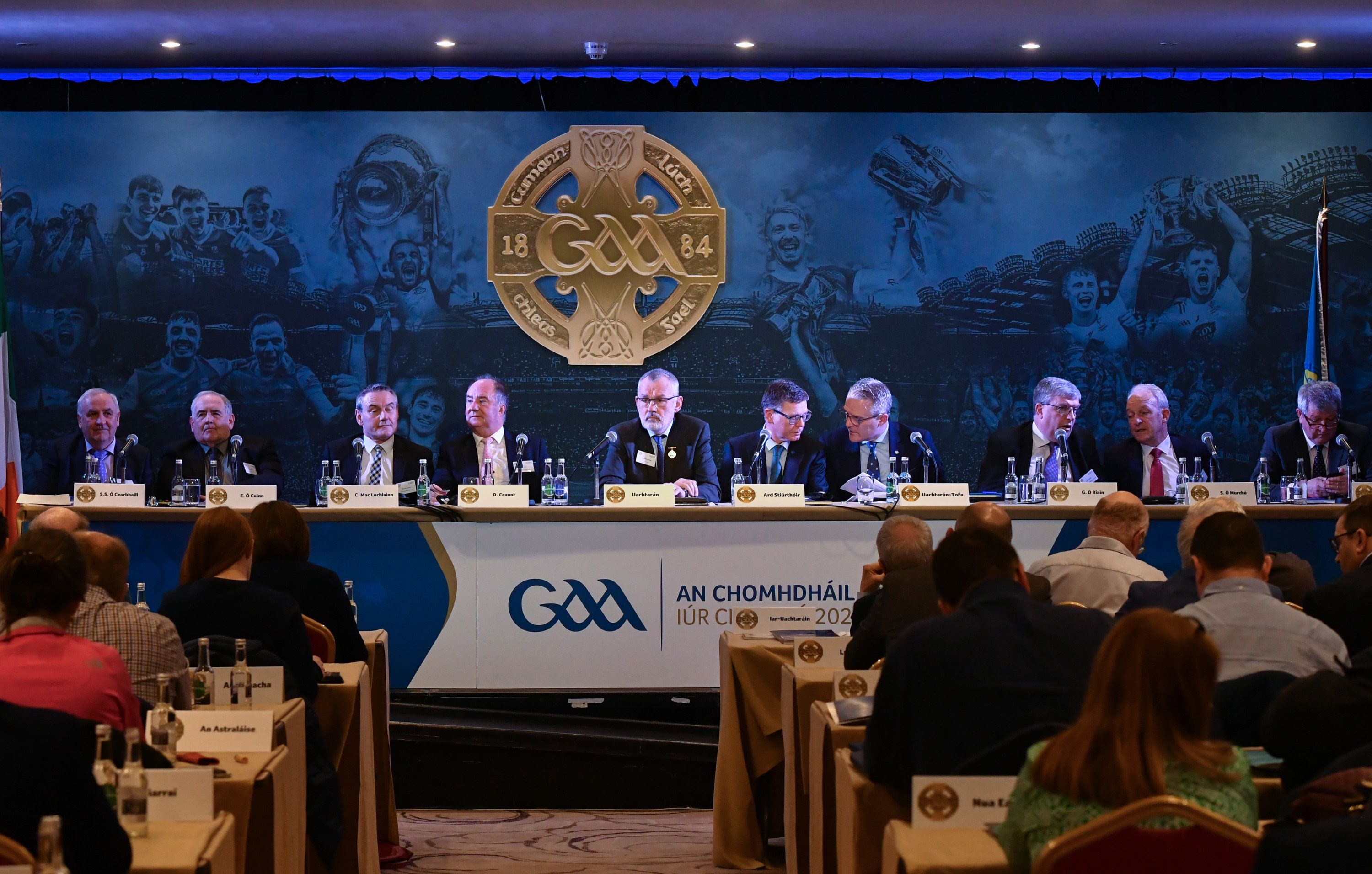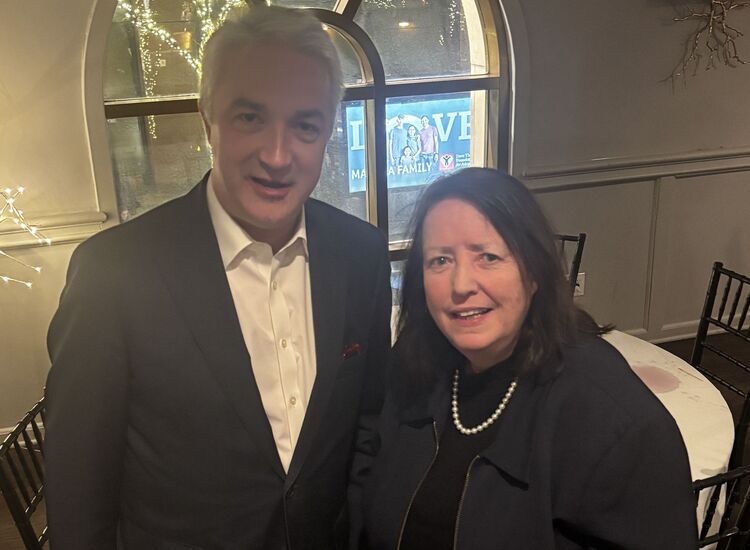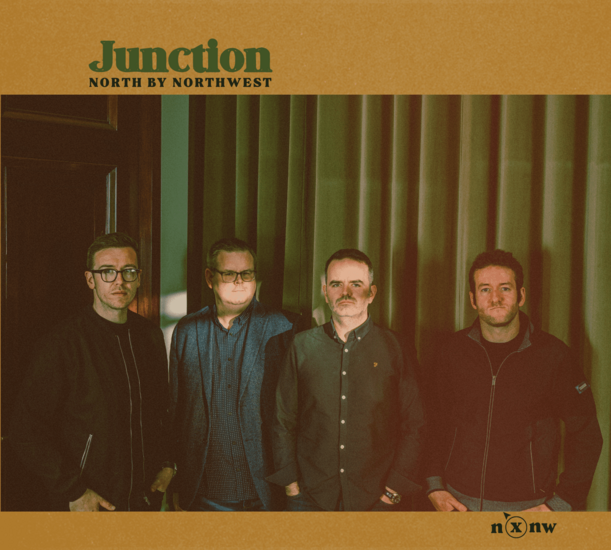“The All-Ireland SFC GAA round-robin format is to remain in place for 2025,” reported extra.ie on Sept. 8.
“GAA Central Council yesterday decided to stick with the much-criticized format for another 12 months, though it is almost certain to be replaced by a new qualifier system at the next GAA Congress.”
The extra.ie report added that it was the “powerful Central Competitions Control Committee (CCCC) that recommended sticking with the current format” for a third and final year in 2025.
To which news I could only say, “Well, thank God!”
Not because it’s a good format. It is not. But I’d finally figured it out with the help of Wikipedia and wasn’t ready for another one. And, in any case, the GAA seemed in real danger of putting something even worse in its place. Or at least the CCCC was about to recommend something worse.
(One might reasonably suppose it’s not coincidental that the very name of the “powerful” GAA committee invokes the Russian-language version of the USSR – the letters CCCP emblazoned on sporting jerseys over many decades surely played some subliminal role in the making and embracing of the abbreviation.)
My interest here is mostly a professional one, as I help edit this publication. We want to know what’s happening so we can tell others what’s at stake, and hopefully make it as exciting for our readers as possible. Sean Creedon in a recent Sports Desk column said that despite the centrality of the GAA’s clubs to its culture, inter-county competition is what brings it the most publicity. For me at least, however, the formats it has used in this century for its signature Sam Maguire Cup, the All Ireland, have not been publicity friendly in certain crucial respects.
The GAA prefers convoluted over simple – indeed the design principle “Keep It Simple, Stupid!” (aka KISS) is utterly alien to it. Simplicity is for foreigners, apparently, and foreign games like soccer.
It’s clear that even people reporting professionally on Gaelic games sometimes get confused about what’s going on. In a piece on the CCCC’s recent kicking to touch, to use a term from another foreign game, extra.ie’s Michael Clifford , who has more than 30 years of GAA reporting experience, wrote: “The sight of Tyrone and Roscommon reaching the All-Ireland quarter-finals after losing three games this summer was cited as the straw that broke the camel’s back.”
Wrong!
Tyrone didn’t qualify for the quarter finals. Roscommon beat them in something called the “preliminary quarter finals” (no doubt, a term thought up by “Worker of the Month”). This round involved the 2nd- and 3rd-placed teams in the round-robin group stage. Actually, Tyrone had only lost one game in their group and Roscommon two, before the latter marched on to the quarterfinals proper.
The 2022 FIFA World Cup in Qatar went from 32 teams to the winner Argentina in 28 days. It took the GAA the same amount of time this year to get from 16 teams in their round-robin groups down to 12 – i.e. eight teams that would compete in the preliminary quarterfinal and four that would go directly to the quarters.
Let’s explain who got into the round robin. First, the winners of the four provincial championships and their final opponents; second, the seven top-ranked NFL teams from this year not already on the first list; and third, the 2nd-tier Taillteann Cup winners for 2023 (Meath). The rest were consigned to the Taillteann Cup for 2024.
The GAA General Council or its CCCC could simply say it made a mistake and the concept in which a group of four eliminates just one makes no sense in practice, and vow to make the necessary adjustment – for instance, and most obviously, have the top two qualify directly for the last-8. If they don’t agree with that, then at least say why not. But, no, it’s the GAA and they must have an entire “rethink.”
But let’s give the GAA credit for getting the KISS principle right in two vital respects. One, it starts out with rankings based on performance in the four-tiered national league, and two, it ends the All Ireland in style with quarterfinals, semifinals and a final. It’s what in between that causes the problem.
When the round robin had finished and the preliminary quarters had yet to begin, GAA President Jarlath Burns intervened on RTE’s “Morning Ireland” to say that the games had lacked “jeopardy.” No kidding? That’s what happens when you set it up that only one team is eliminated from a group of four, and especially when there’s an obviously weak team to target. However, having allowed the 3rd-placed teams to advance, the finger is then pointed at the counties themselves as if they had somehow gamed the system.
It’s not clear whether a press reporter was paraphrasing Burns’s or some semi-official view here he wrote in the context of the president's interview that Roscommon, Derry and Monaghan “have won only one of their four championship games this season,” in qualifying for that preliminary quarterfinal round.
And that attitude is the problem right there. Counting back to their loss in the provincial championship goes against the spirit of their qualification as equal members in the last 16. Their provincial games were, in any case, tougher than most of those in Leinster or Munster. And standards have been higher in Ulster and Connacht – their counties have predominated in the NFL Div. 1 of late.
Who was robbed by those counties advancing to the Last 12? Nobody. No other county was even inconvenienced. Of the three, Monaghan actually had a better record, as they also drew one game, but they did not go on to the quarters, whereas the wiley Derry and Rossies did.
Clare, on the other hand by way of contrast, have won the Munster championship just twice – 105 years ago and 32 years ago. The 19th-ranked county, whose hurlers won their All Ireland in 2024, were never considered realistic contenders for a third title in this year’s Munster final against Kerry, who’ve had near total dominance in the South over many years. Yet, the Banner County were placed in the second-seed pot for the round-robin draw.
GAA officials are forced to carry around the dead weight of tradition – as is the case with the provincial championships, which, although of intrinsic interest, offer nothing concrete in terms of which county become champions in the summertime. But another reality, I’d suggest, is that officials live in fear of a pretty good or even a half-decent team being knocked too early and people whining about it.
And so they’ve devised formats that seemed designed to keep the pretty good and the half-decent counties in the mix into the summer. Consider the case of two of those counties cited by Burns
Roscommon can’t be said to have had a good season overall, beginning with being demoted from Div. 1. Nevertheless in the championship, the 9th-ranked county played just a single game against lower-ranked opposition, Cavan (11th), and won it. They were knocked out in the second toughest province, Connacht, by Mayo (4th ranked nationally); lost again to Mayo in the round-robin, and lost also to reigning All Ireland champions Dublin (2nd -ranked), and as mentioned beat Tyrone (5th-ranked) in the preliminary quarterfinals, before losing to the ultimate winners Armagh (8th-ranked) in the quarterfinals.

Tyrone's Darragh Canavan tackling Eoin McCormack of Roscommon when the teams met in the Preliminary Quarter Final at Omagh on June 22. [Inpho/Leah Scholes]
Derry had a wonderful start to the season, under new manager Mickey Harte, whose appointment had been big news. They won six of their seven games in Div. 1 of the NFL and then defeated Dublin at Croke Park to take the title and the No. 1 ranking status. But the wheels came off their wagon, to use one media cliché, or their season failed to catch fire, another. Maybe it was the wagon that caught fire and the wheels then fell off? In any case, they were knocked out of the Ulster championship by Donegal and had two more defeats in the round-robin against the ultimate finalists, Armagh and Galway. Jeopardy, Burns-style, was likely involved in their win over Westmeath and also their penalty shoot-out victory over Mayo in the preliminary quarterfinal stage. Derry’s luck finally ran out against Kerry in the quarters.
So, Roscommon and Derry just about deserved to get to the quarters, but no further. A half-decent side and a pretty good side were kept alive for just the right amount of time, in GAA terms.
There are pure round-robin systems, like the domestic soccer leagues of most nations, and there are pure knockout formats like their cup competitions, and the All Ireland prior to 2000. Then there are the competitions that combine a short round-robin with a knock-out, like the World Cup finals and the UEFA Champions League.
The GAA, with its bureaucratic meddling, has managed to distort the simplicity of both the round-robin system (e.g., three qualifying out of four) and the knockout, by making it not a knockout – as in previous seasons with the backdoor or “scenic route,” in which a team didn’t die at all; turned out to be a dream, like in a daytime TV soap opera.
Burns in his thinking aloud seemed to suggest a return to the latter, with talk of a “second chance.”
What the GAA should really consider is allowing the Connacht, Leinster, Munster and Ulster championships to be standalone competitions. They might organize a springtime festival of football or, better still, an autumn festival of football. A Kerry “B” squad could train through the summer in Munster; likewise a Dublin “B” in Leinster; Connacht could invite a colleges team to compete or ask some recent All Stars to put together a squad. Ulster, I suspect, might say “no” to the invitations idea, or more politely say, “It’s okay. We’re good.” Either way, there’d be bragging rights on offer for the winners and the province that put together the best tournament. We know from golf that you don’t need to be tied to a major to stage a prestigious competition.
Right now, the provinces are being bypassed anyway.
At the conclusion of play in the 2024 National Football League, there were eight Div. 1 teams in place for next season: Armagh, Derry, Donegal, Dublin, Galway, Kerry, Mayo and Tyrone.
Six of those made it to the 2024 All Ireland quarterfinals. The only two that didn’t were the last named – Mayo, beaten by No. 1-ranked Derry, and Tyrone, who went down to the recently demoted 9th-ranked Roscommon, both, as mentioned above, in the preliminary quarterfinals.
Congrats to Louth, the only team to crash the elite’s quarterfinals party. It should be said, though, that their 14th rank meant they would’ve made the round-robin even if they hadn’t reached the Leinster decider against Dublin.
In essence, the last 16 was comprised of the top two divisions of the NFL – and Clare.
There shouldn’t be two tiers. There are already four. There’s a lot to be said for a formal equality starting out. In England, by way of example, the third competition, the League Cup, officially the EFL, is a knockout open to all 92 teams in the top four professional tiers.
The 31 counties playing senior level in Ireland and New York/ London, taking turns, make 32. The casual fan understands fully-seeded groups of four with the two qualifying, and maybe allowing for the option of a couple of the strongest 3rd places and weakest 2nd places having playoffs. You want publicity? This is the way. The focus is on whether your team makes it to the next level. Can a middling team get to the Round of 16? And then to the quarters?
The GAA has long been a middle-class organization with lots of people with law, engineering, finance, urban planning and all sorts of other impressive degrees. There’s too much education involved, perhaps, to come up with a solution. They’ve forgotten what it’s like to be a child looking at tables on the page, nowadays a screen, and they don’t know or care about how it feels to be a journalist bombarded with information from all directions.
The answer could be as simple as 32, 16, 8, 4, 2 and 1.








